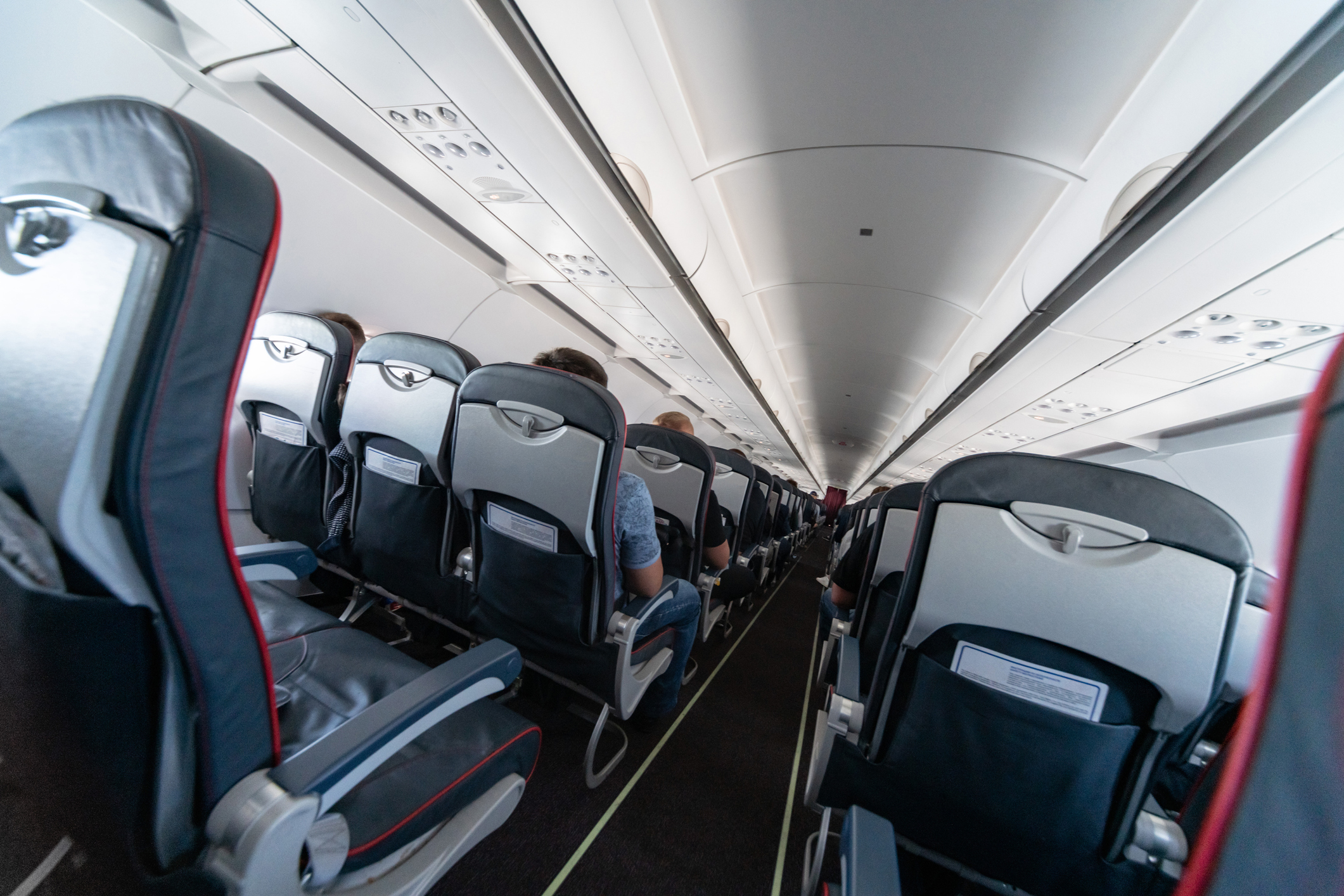To recline or not to recline?
In today's absurdly cramped airplanes, do you have a right to push your seat back?


A free daily email with the biggest news stories of the day – and the best features from TheWeek.com
You are now subscribed
Your newsletter sign-up was successful
This is the editor's letter in the current issue of The Week magazine.
As soon as we hit cruising altitude, the tall guy in the seat in front of my wife — he had to be 6-foot-5 — aggressively reclined his seat back as far as it would go. Thunk. His hair was scant inches from Karla's face. The tiny airspace in front of her cramped seat was gone. In its place was the considerable bulk of an oblivious stranger, concerned only about his own constricted comfort; soon, he began snoring. And so it went for the entire seven-hour red-eye across the Atlantic. Getting past that reclined seat for bathroom trips required gymnastic contortions. Those of us who fly coach — steerage without the rats — have similar experiences every time we wriggle into a modern airline's kindergarten-size seats. These close encounters have given birth to a new national debate: Do air passengers have an inalienable right to recline, or is leaning back selfish and rude?
There is a larger issue here, which is the decline in kindness and civility in nearly every sphere: airplanes, highways, social media, and, of course, politics. The anonymity of modern life and sheer number of interactions dulls our sense of each other's humanity, while sharpening our fear we're engaged in a Darwinian struggle for nearly everything, from a few inches of space on an airplane to control of the Supreme Court. Aggression and resentment are contagious. But so, say both the great sages and the scientists, is kindness. Anthropologists have concluded that human beings are hardwired for cooperation and caring as well as for cruelty, and that our ability to share knowledge and tasks enabled our species to flourish. In every religion, kindness is a central virtue. Acting in behalf of others' welfare, scientists have found, improves your own mental and physical health. Being a jerk, in other words, is a choice. We don't need to call each other names online, and we surely don't need to shove our seat backs into each other's faces.
The Week
Escape your echo chamber. Get the facts behind the news, plus analysis from multiple perspectives.

Sign up for The Week's Free Newsletters
From our morning news briefing to a weekly Good News Newsletter, get the best of The Week delivered directly to your inbox.
From our morning news briefing to a weekly Good News Newsletter, get the best of The Week delivered directly to your inbox.
A free daily email with the biggest news stories of the day – and the best features from TheWeek.com
William Falk is editor-in-chief of The Week, and has held that role since the magazine's first issue in 2001. He has previously been a reporter, columnist, and editor at the Gannett Westchester Newspapers and at Newsday, where he was part of two reporting teams that won Pulitzer Prizes.
-
 The ‘ravenous’ demand for Cornish minerals
The ‘ravenous’ demand for Cornish mineralsUnder the Radar Growing need for critical minerals to power tech has intensified ‘appetite’ for lithium, which could be a ‘huge boon’ for local economy
-
 Why are election experts taking Trump’s midterm threats seriously?
Why are election experts taking Trump’s midterm threats seriously?IN THE SPOTLIGHT As the president muses about polling place deployments and a centralized electoral system aimed at one-party control, lawmakers are taking this administration at its word
-
 ‘Restaurateurs have become millionaires’
‘Restaurateurs have become millionaires’Instant Opinion Opinion, comment and editorials of the day
-
 Epstein files topple law CEO, roil UK government
Epstein files topple law CEO, roil UK governmentSpeed Read Peter Mandelson, Britain’s former ambassador to the US, is caught up in the scandal
-
 Iran and US prepare to meet after skirmishes
Iran and US prepare to meet after skirmishesSpeed Read The incident comes amid heightened tensions in the Middle East
-
 Israel retrieves final hostage’s body from Gaza
Israel retrieves final hostage’s body from GazaSpeed Read The 24-year-old police officer was killed during the initial Hamas attack
-
 China’s Xi targets top general in growing purge
China’s Xi targets top general in growing purgeSpeed Read Zhang Youxia is being investigated over ‘grave violations’ of the law
-
 Panama and Canada are negotiating over a crucial copper mine
Panama and Canada are negotiating over a crucial copper mineIn the Spotlight Panama is set to make a final decision on the mine this summer
-
 Why Greenland’s natural resources are nearly impossible to mine
Why Greenland’s natural resources are nearly impossible to mineThe Explainer The country’s natural landscape makes the task extremely difficult
-
 Iran cuts internet as protests escalate
Iran cuts internet as protests escalateSpeed Reada Government buildings across the country have been set on fire
-
 US nabs ‘shadow’ tanker claimed by Russia
US nabs ‘shadow’ tanker claimed by RussiaSpeed Read The ship was one of two vessels seized by the US military
